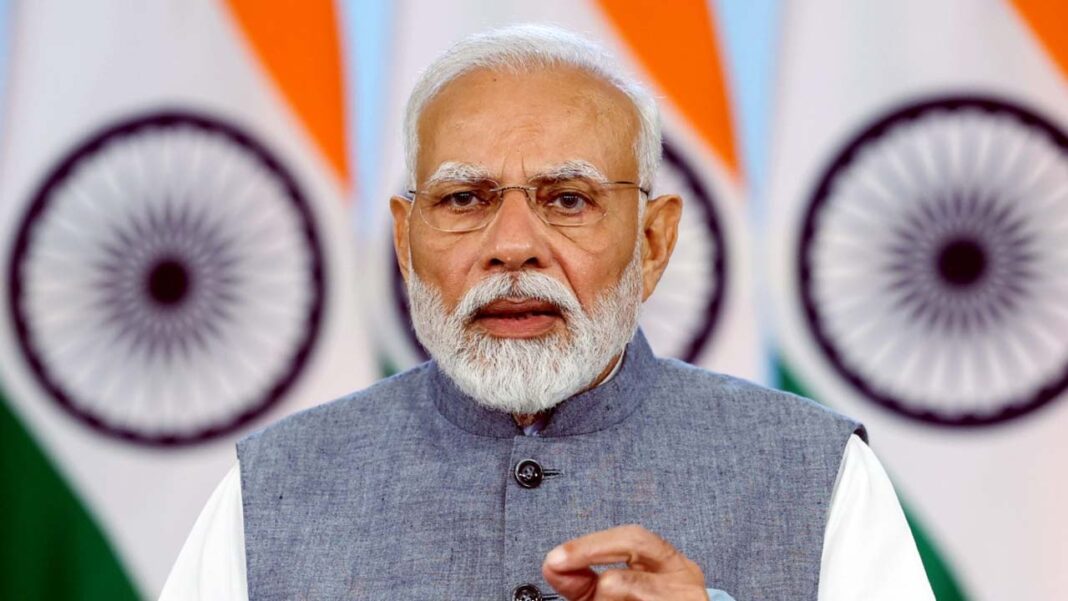BJP ideologue Deendayal Upadhyay prepared the Antyodaya policy to enable the party to reach the down-trodden sections and the policy can be described as the Bhagavad Gita for the BJP. The All-India general council of All India Jana Sangh held at Indore in 1968 discussed the special report on the condition of SCs and STs. The report said that as long as they were not given their due share in empowerment and development, these sections would not progress. It was decided then that industries should be allotted for the backward classes. After the formation of the BJP in 1980, it was decided to implement specific policies for the SC and STs, backward classes and minorities in society.
Adivasis should be given partnership in all schemes and programmes related to small-scale and cottage industries. When Bangaru Lakshman was the party president in 2000, it was decided that building of modern India would not be possible without extending social justice.
The BJP received support from the Dalits, Adivasis and Backward Classes as they realised that the BJP is sincere, compared to other parties, in extending social justice to various groups and can put in place specific measures in this regard.
Modi’s slogan of Sab Ka Saath and Sab Ka Vikaas resonated among the people. In 2014 elections, when Modi-led BJP posted tremendous victory, a review revealed that the poor, down-trodden sections and Dalits were inclined towards the BJP on a large scale. As Modi was aware of the value of rendering the social justice, after seven decades of India becoming independent he took a historic decision to provide constitutional status to the National Commission for the socially and educationally Backward Classes.
It paved the way for implementing the Articles 15 and 16 of the Indian Constitution and empower the backward classes. While the Adityanath Commission constituted the Social Justice Committee to examine the division of the OBC quota, Modi government constituted Justice Rohini Commission to study sub-categorisation of the OBCs.
Either the BJP or Narendra Modi did not identify the BCs and Dalits as those who were dependent on reservations and jobs. Modi desired that they become employers instead of the employees.
Therefore, he sanctioned loans to seven crore persons under Mudra Yojana to enable them to become self-reliant. For the first time the government declared MSP for the produce of the Adivasis. Pattas for lakhs of hectares of land were given to the Adivasis to practice agriculture. To enable Dalits live life holding their head high, Modi declared land – Janma Bhoomi, Siksha Bhoomi, Karma Bhoomi, Deeksha Bhoomi and Maha Pari Nirvana Bhoomi — associated with Dr BR Ambedkar as panchateerthas.
An international centre in the name of Dr Ambedkar was started. A special budget amounting to Rs 95,000 crore was introduced to benefit Dalits and Adivasis.
The allocations to the OBCs in the budget have been increased by 41 per cent. But majority of the fruits of government schemes were trickling down to the Yadavs, who constitute only 15 per cent of the population, and Kurmis, who constitute only 9% of the population, leaving communities like Nishad, Kasyap, Bhind, Chourasia, Teli, Saahu, Nayi, Viswakarma, Baghel, Pal, Lodh, Giri, Goswamy, Prajapati, Rajbhar, Lohar, Jaiswal, Kalwar, Saini, Mali, Gangwar, Halwai, Kusavaha and Koiri out of the purview of the social justice.
The BJP and Modi governments are sincerely working to reach out to them and appointed them in leadership positions. Parties like Apna Dal, Suhuldev Bharatiya Samaj Party, Nishaad Party, Vikaas Sheel parties became closer to the BJP.
After the Independence Day, Narendra Modi expanded his Cabinet with the inclusion of 27 OBC ministers. The BJP has 85 OBC MPs, 365 OBC MLAs and 65 OBC MLCs.
The BJP reached out to the most backward sub-castes among the Dalits like Paasi and Sonkar sub-castes. The BJP also identified the most backward Pasmanda Muslims among the Muslims and took steps to render social justice to them.
In Bihar too, the BJP reached out to the Kalwaar, Dhobi and Baniya communities. The CSDS-Lok Neeti Survey confirmed that the BJP was successful in reaching out to the poorest of the poor among the Muslims and the down-trodden sections.
In Telangana, Modi made clear its ideology in Telangana by hugging the Madigas and understanding their agony.
BJP renders social justice to people




